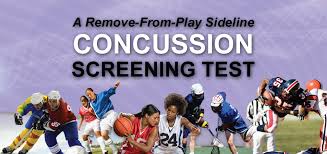Vision Therapy Can Help!
Attention Deficits (ADD/ADHD)

Vision therapy improves many skills that help a person to pay attention. Anyone diagnosed with ADD/ADHD should have a complete evaluation by a behavioral optometrist. Vision is more than clarity, and is a complex combination of learned skills, including tracking, fixation, focus change, binocular fusion and visualization. When all of these skills are well-developed, children and adults can sustain attention, read and write without careless errors, give meaning to what they hear and see, and rely less on movement and sound when learning.
ADD/ADHD and vision problems share the same symptoms:
Inattention:
- Fails to pay close attention to details or makes careless mistakes
- Has difficulty sustaining attention in tasks or play activities
- Does not listen when spoken to directly
- Does not follow through on instructions or fails to finish work
- Has difficulty organizing tasks and activities
- Avoids, dislikes or is reluctant to engage in tasks requiring sustained mental effort
- Often loses things
- Distracted by extraneous stimuli
- Forgetful in daily activities
Hyperactivity and Impulsivity:
- Fidgets with hands or feet, squirms in seat
- Has difficulty remaining seated when required to do so
- Often talks excessively
- Blurts out answers to questions before they have been completed
- Has difficulty awaiting turn
- Sometimes interrupts or intrudes on others
Traumatic Brain Injury and Concussions

The King Devick test is making headlines from the sidelines! This quick and easy test is an excellent way to check for concussions. Read more about it here -
http://www.startribune.com/eye-motion-test-shows-promise-for-concussion-detection/320991451/
http://www.startribune.com/eye-motion-test-shows-promise-for-concussion-detection/320991451/
There is a high incidence of visual disorders with those who have experienced a Traumatic Brain Injury (TBI). Recovering from a TBI is a lengthy process that involves numerous treatments; at Focus Academy, we specialize in working with TBI patients and routinely work to improve their vision skills. We know that recovery is possible through the use of vision therapy and our patients regain skills that were thought to be lost forever.
Some of the areas of vision that are affected by an brain injury and have been shown to improve include:
Some of the areas of vision that are affected by an brain injury and have been shown to improve include:
- Improving fixation and decreasing nystagmus
- Developing tracking and saccadic movement skills
- Improving the ability to converge and diverge with accuracy and clarity (accommodation)
- Using both eyes as a team to achieve full depth perception
- Developing an understanding of visual perceptual skills, including visual memory, visual closure, spatial relationships and more
Autism
Learn more about vision therapy and Autism - visit these links for more info!
http://www.covd.org/?page=Autism
http://www.autism.com/treating_vision
http://www.covd.org/?page=Autism
http://www.autism.com/treating_vision
